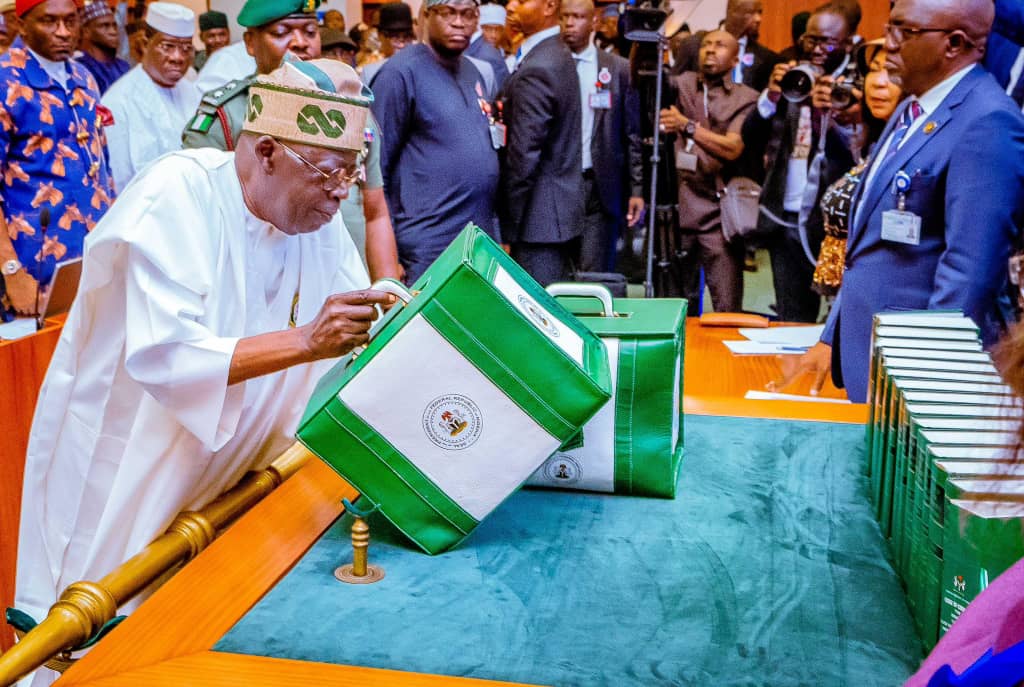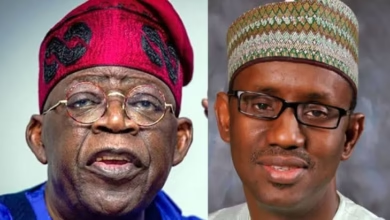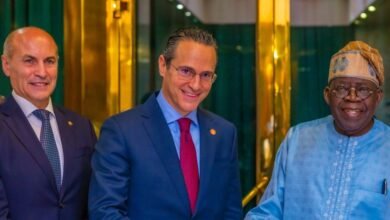
On November 29, 2023, President Bola Tinubu presented the 2024 Budget of Renewed Hope to the National Assembly. The proposed budget, with a total expenditure of N27.5 trillion, seeks to address the nation’s economic challenges, promote sustainable growth, and improve the living standards of Nigerians.
Here are some of the key highlights of President Tinubu’s speech
Economic Growth Projections: The economy is expected to grow by a minimum of 3.76%, above the forecasted world average. Inflation is projected to moderate to 21.4% in 2024
Conservative Oil Price Benchmark: A conservative oil price benchmark of 77.96 US Dollars per barrel and daily oil production estimate of 1.78 million barrels per day have been adopted.
Aggregate Expenditure: An aggregate expenditure of 27.5 trillion naira is proposed for the Federal Government in 2024.
Debt Service: Projected debt service is 45% of the expected total revenue.
Budget Deficit: Budget deficit is projected at 9.18 trillion naira in 2024 or 3.88% of GDP.
Financing the Deficit: The deficit will be financed by new borrowings totaling 7.83 trillion naira, 298.49 billion naira from Privatization Proceeds, and 1.05 trillion naira drawdown on multilateral and bilateral loans secured for specific development projects.
Tax and Fiscal Policy Review: Tax and fiscal policies are being reviewed to increase the ratio of revenue to GDP from less than 10% currently to 18% within the term of this Administration.
Prioritizing Defense and Internal Security: The budget allocates top priority to defense and internal security, emphasizing the need to overhaul the security architecture to safeguard lives, property, and investments across the country.
Enhancing Social Investment Programs: Social investment programs will be reviewed to enhance their implementation and effectiveness, expanding the National Social Safety Net project to provide targeted cash transfers to poor and vulnerable households.
Addressing Education Challenges: To address long-standing issues in the education sector, a more sustainable model of funding tertiary education will be implemented, including the Student Loan Scheme, scheduled to start in January 2024.
Securing Climate Action Funding: As Nigeria approaches COP 28, the government will work to secure substantial funding commitments that will bolster Nigeria’s energy transition.





